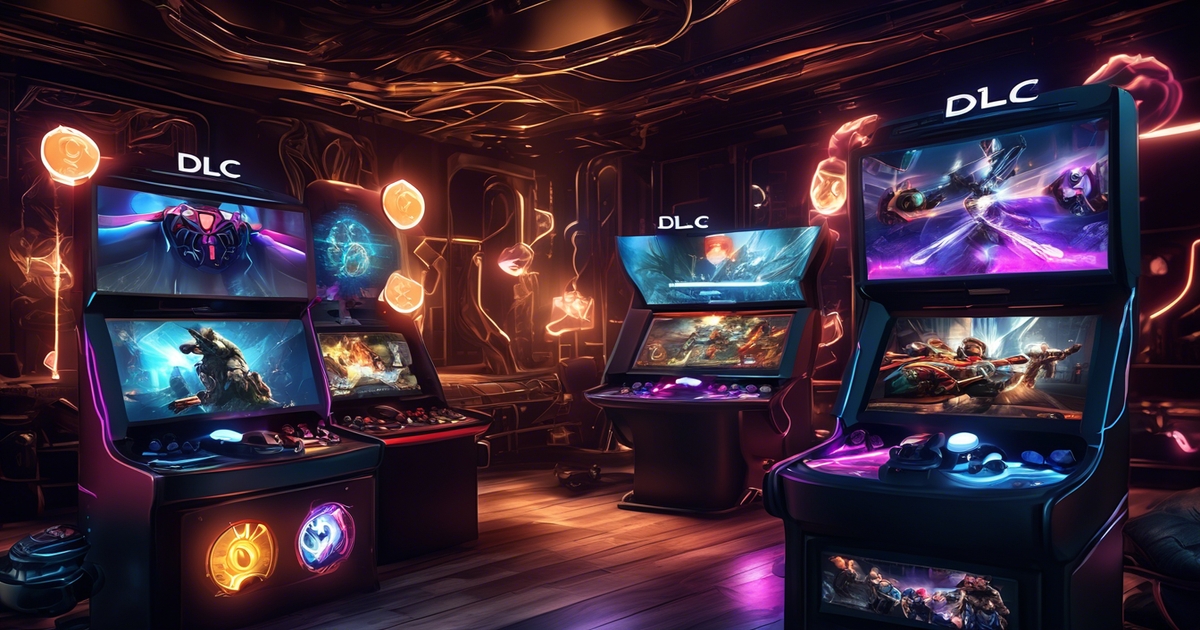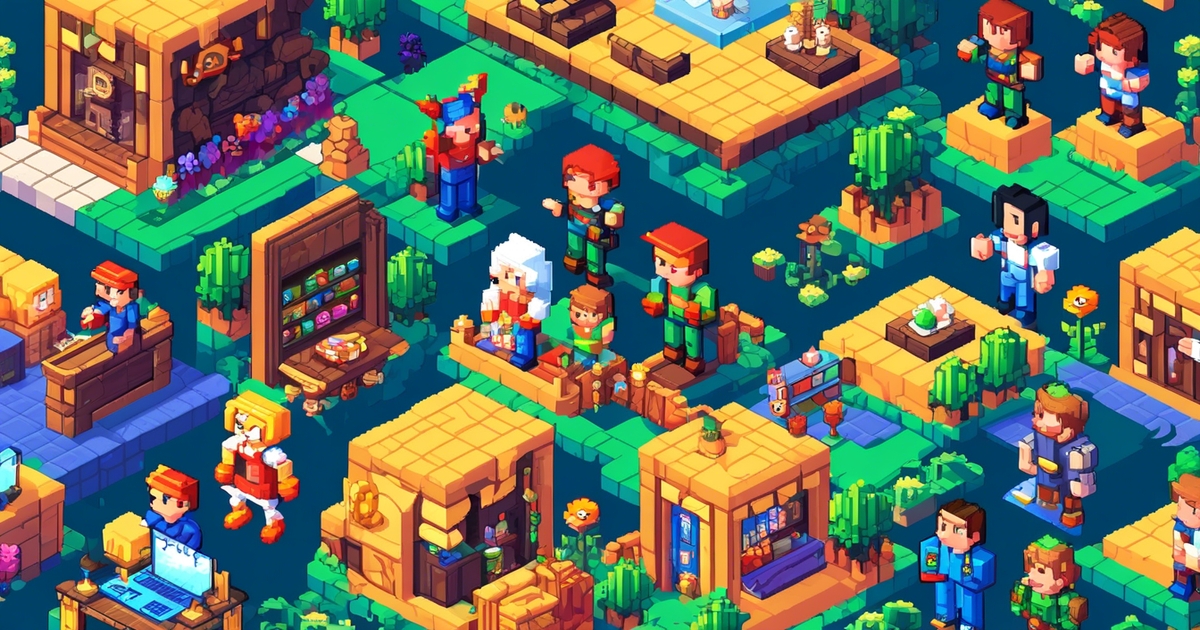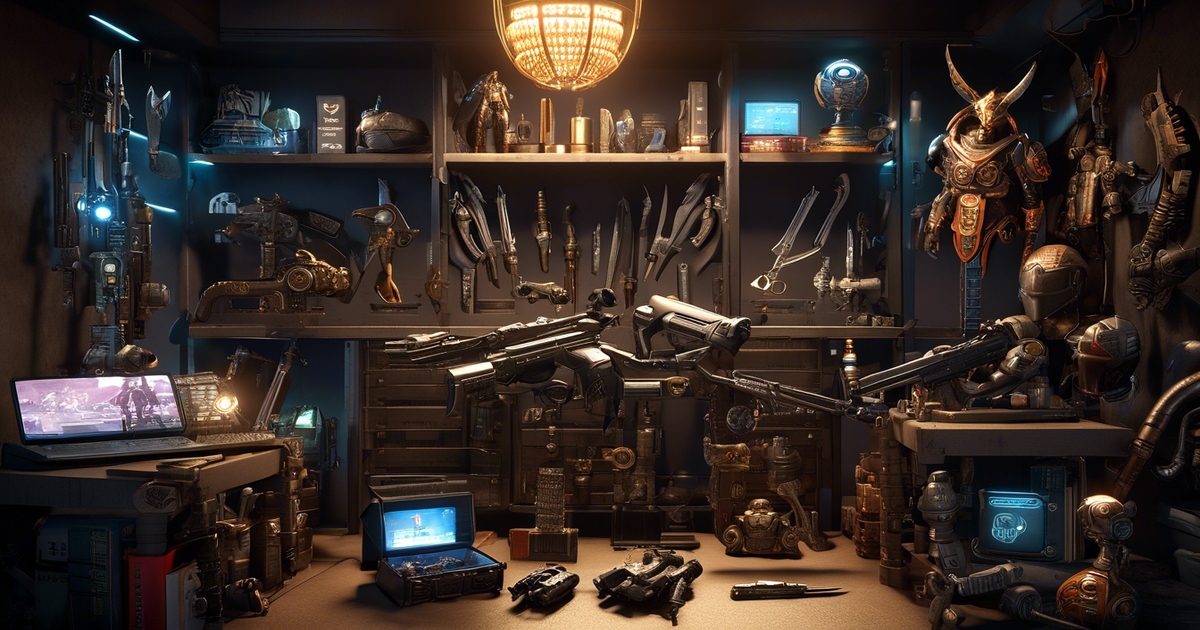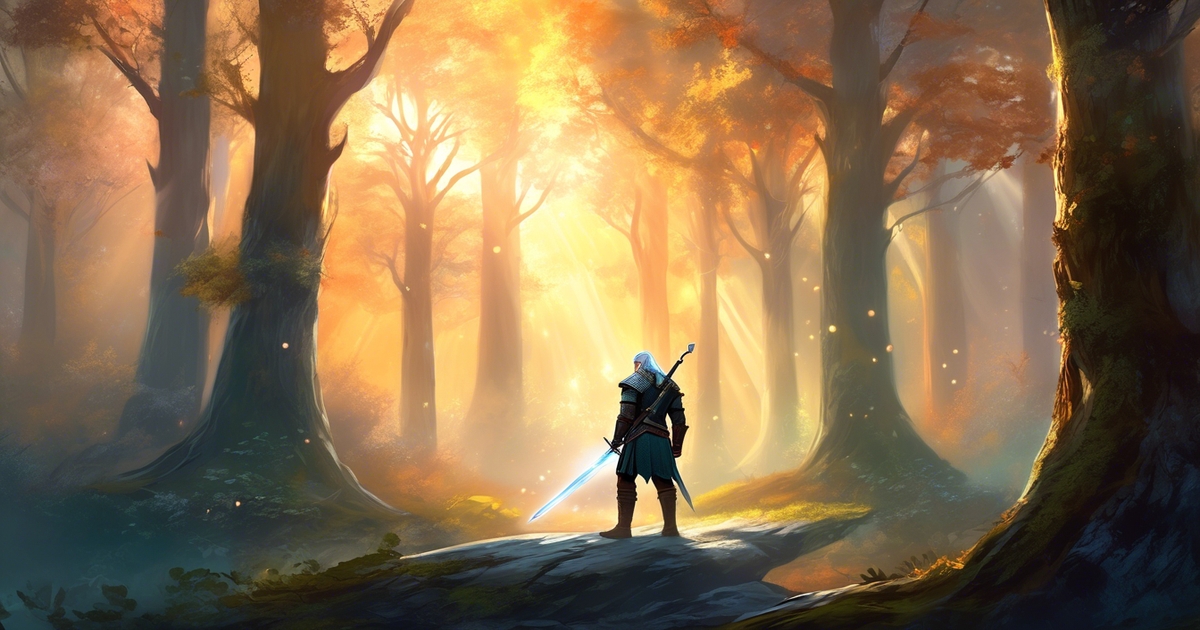What Is DLC in Gaming: The Ultimate Guide

- What is DLC in Gaming
- Evolution and Historical Background of DLC
- Understanding Different Types of DLC
- DLC on Various Platforms: Consoles, PCs, and Handheld Devices
- Monetization Strategies and Impact on Player Engagement
- Addressing Concerns and Criticisms of DLC
- Future Trends and Innovations in DLC Content
- Noteworthy Examples of DLC in Gaming
- Closing Thoughts
- Frequently Asked Questions
In the realm of gaming, understanding what DLC (Downloadable Content) entails is crucial for avid gamers. DLC offers additional game features, levels, characters, and more beyond the original release.
This post delves into the meaning of this gaming term, the significance of DLC in enhancing gameplay experiences and keeping content fresh and engaging for players seeking new challenges and adventures.
What is DLC in Gaming
DLC, or Downloadable Content in gaming, refers to additional content created for a video game post-launch. Players can purchase and download this content to enhance their gaming experience.
Developers often release DLC packs containing new levels, characters, storylines, weapons, or cosmetic items. This extra content allows players to extend the longevity of a game they enjoy by adding new challenges or customizations.
Pros:
- Extends gameplay
- Adds fresh content
- Enhances player experience
Cons:
- Can be costly
- Fragmentation within the player base
Players appreciate DLC as it provides them with more hours of entertainment beyond what the base game offers. For example, “The Witcher 3” had two major expansions that introduced new areas to explore and quests to complete.
Some gamers argue that developers should include all content in the original game instead of selling it separately through DLCs. However, when done right, downloadable content can significantly enrich a gamer’s overall enjoyment of a title.
Evolution and Historical Background of DLC

DLC, or downloadable content, has a rich history in the gaming industry. Initially starting as expansion packs that players could purchase to extend their gameplay, DLC has transformed into digital enhancements available for download after a game’s release. This concept emerged in the early 2000s when developers sought ways to keep players engaged with their games over time.
The evolution of DLC from expansion packs to digital content signifies a shift towards providing ongoing support and fresh experiences for gamers. Developers can now create additional levels, characters, storylines, weapons, and more post-launch through DLC. This approach not only extends the lifespan of games but also allows developers to adapt to player feedback and preferences by continually updating and expanding the gaming universe.
Understanding Different Types of DLC

DLC in gaming comes in various forms, each offering unique experiences for players. Cosmetic items are one type of DLC that allows gamers to personalize their characters or game environments with new skins, outfits, or accessories. This type of DLC enhances visual aesthetics without affecting gameplay.
On the other hand, expansion packs and story expansions bring substantial content additions to games. Expansion packs introduce new areas, quests, weapons, or characters that expand the game world significantly. For example, an expansion pack for a role-playing game might introduce a new region for players to explore with its own storyline and challenges.
Season passes are another form of DLC that provides access to multiple upcoming downloadable content releases at a discounted price compared to purchasing each item individually. Season passes often include a combination of cosmetic items and expansion content over time.
DLC on Various Platforms: Consoles, PCs, and Handheld Devices
DLC content is available across various gaming platforms like consoles (PlayStation, Xbox), PCs (Steam), and handheld devices (Nintendo Switch). Each platform offers its marketplace where gamers can find and purchase dlc packs to enhance their gaming experience. For instance, PlayStation Store for PlayStation users or Steam for PC gamers.
Compatibility of DLC may differ between platforms, with some video games offering exclusive content only accessible on specific platforms. This means that certain DLC packs may be available solely to players using a particular console or device. This exclusivity adds an element of uniqueness to the gameplay experience based on the platform chosen by the gamer.
Monetization Strategies and Impact on Player Engagement
Developers in the gaming industry employ various monetization strategies such as one-time purchases, microtransactions, and season passes to offer additional content through DLC. For instance, players can buy a new expansion pack for their favorite game or purchase in-game currency using microtransactions.
DLC plays a crucial role in enhancing player engagement by continuously providing fresh content and extending the game’s longevity. This keeps players interested and invested in the game over an extended period. Successful implementation of DLC not only boosts revenue for developers but also ensures that players remain connected to the game, leading to a thriving player community.
Addressing Concerns and Criticisms of DLC
Players often criticize DLC in gaming for being overpriced or feeling like cut content from the main game. This can lead to dissatisfaction among gamers who feel they are not getting their money’s worth. For example, if a DLC pack offers minimal additional gameplay or features at a high price, players may perceive it as unfair.
Developers sometimes face backlash when they prioritize creating DLC over fixing bugs or addressing other issues present in the base game. Players expect developers to focus on improving the core gaming experience before introducing additional paid content. When bugs remain unresolved or significant gameplay problems persist while new DLC is released, it can create frustration and erode player trust in the developer’s priorities.
Transparency and communication play crucial roles in mitigating concerns surrounding DLC. When developers openly share their plans for upcoming DLC, pricing strategies, and how this content complements the base game without feeling like essential parts were removed just to be sold separately, players are more likely to understand and accept these additions positively.
Future Trends and Innovations in DLC Content
As the landscape of gaming evolves, downloadable content (DLC) is poised for exciting advancements. Moving forward, developers are likely to embrace more live service models, ensuring games stay fresh with regular updates and new content drops. This approach enables players to engage continuously with their favorite titles, fostering a sense of community and longevity within the game.
Moreover, the future holds promise for enhanced cross-platform DLC compatibility, allowing gamers to enjoy their purchased content across various devices seamlessly. Imagine purchasing a new weapon pack on your console and being able to access it on your mobile device or PC without any limitations. This level of flexibility not only enhances the player experience but also promotes accessibility and convenience for gamers across different platforms. Emerging technologies like augmented reality (AR) and virtual reality (VR) may revolutionize DLC experiences by offering immersive gameplay elements that blur the lines between virtual worlds and reality.
Noteworthy Examples of DLC in Gaming

“The Witcher 3: Wild Hunt” stands out for its story expansions, offering extra gameplay. These expansions are like bonus chapters that continue the main game’s narrative. Players get to explore new areas, encounter fresh characters, and embark on quests that further enrich the game world.
“Grand Theft Auto V” revolutionized online multiplayer gaming by regularly releasing DLC updates. These updates introduce new missions, vehicles, weapons, and activities to keep players engaged in the online mode. The continuous addition of content ensures that players always have something new to experience within the game.
“The Elder Scrolls V: Skyrim” boasts a vibrant modding community that develops user-generated DLC. These mods range from small tweaks to massive expansions that overhaul graphics or introduce entirely new storylines. This user-created content significantly extends the lifespan of the game by providing endless possibilities for players beyond what was originally offered by the developers.
Closing Thoughts
In conclusion, the landscape of downloadable content (DLC) in gaming has evolved significantly, offering diverse content types and monetization models across various platforms. Understanding player preferences and addressing concerns about fairness and game integrity are crucial aspects that developers need to consider while innovating in this space. As the industry moves forward, embracing transparency and engaging players in the creation and improvement of DLC content will be pivotal for sustained success.
Gamers and developers alike should continue to engage in open dialogues about DLC practices to ensure a mutually beneficial gaming experience. By fostering a community-driven approach to DLC development and delivery, the gaming industry can cultivate trust, enhance player engagement, and drive innovation for future content offerings.
Frequently Asked Questions
What does DLC stand for in gaming?
DLC stands for Downloadable Content in gaming. It refers to additional game content that players can purchase and download to enhance their gaming experience, such as new levels, characters, items, or storylines.
How has DLC evolved over time in the gaming industry?
The evolution of DLC in the gaming industry has seen a shift from simple cosmetic additions to substantial expansions offering new gameplay experiences. Developers now use DLC as a way to extend the life of games post-launch and engage players with fresh content.
In what ways do different platforms offer DLC options for gamers?
Various platforms like consoles, PCs, and handheld devices provide avenues for developers to offer downloadable content. Each platform may have its distribution methods and restrictions.
How do monetization strategies involving DLC impact player engagement?
Monetization strategies tied to DLC can influence player engagement by offering incentives for continued playthroughs or purchases. However, excessive monetization practices may lead to backlash from players concerned about pay-to-win mechanics or unfair advantages.
Can you provide examples of notable instances where DLC has been successfully implemented in games?
Noteworthy examples of successful implementation of DLC include “The Witcher 3: Wild Hunt” with its expansive story expansions and “Elder Scrolls V: Skyrim” introducing major add-ons like Dawnguard. These cases demonstrate how well-crafted downloadable content can enrich the overall gaming experience.
